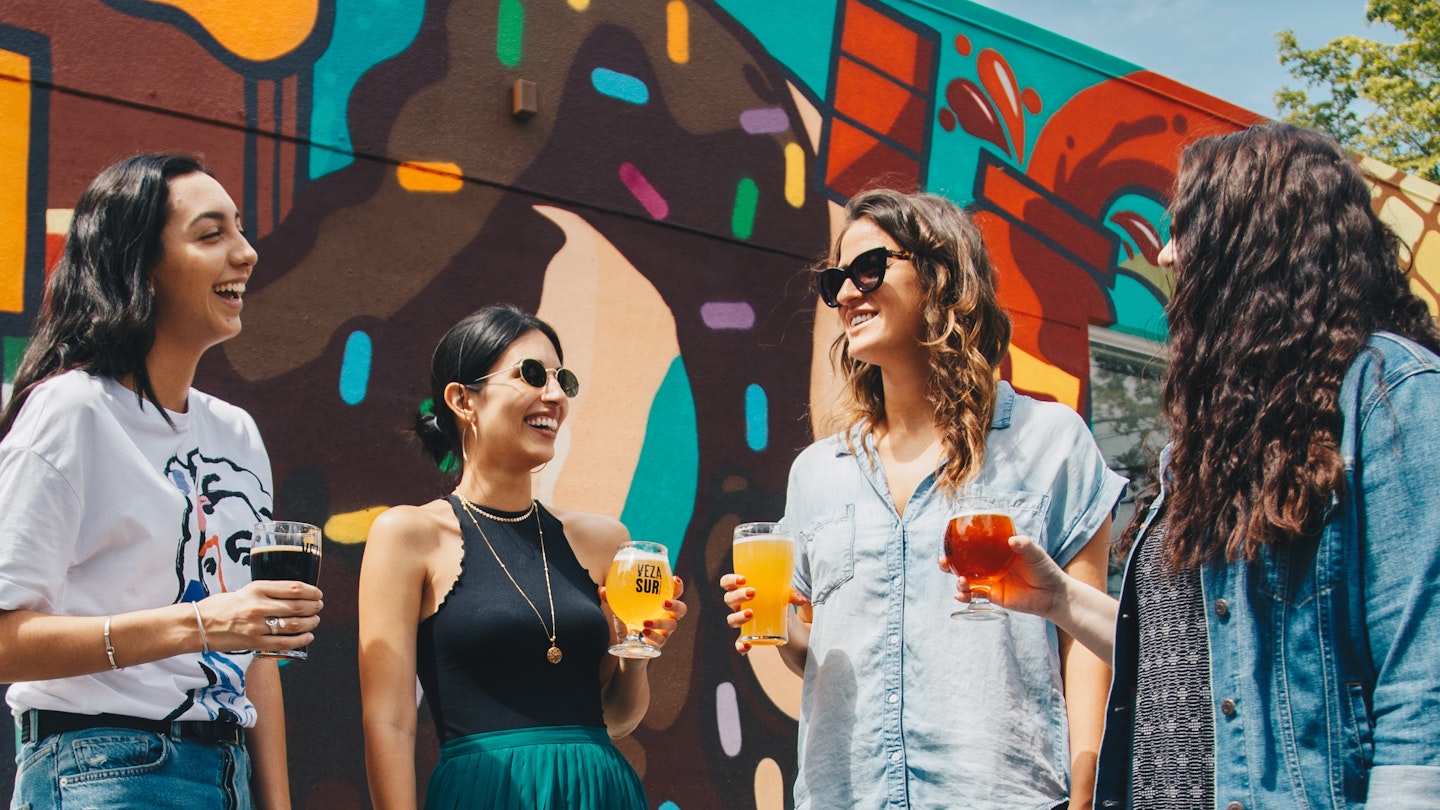This morning, the tips of our fingers slipped from the cliff-edge that is safe alcohol consumption. We have spent years gripping onto the idea that one glass of wine a day is good for your health, happily chugging rose every evening as part of our #selfcare routine. However, in a soul-crushing turn of events, the largest and most detailed study into the effects of alcohol has found that ‘the safest level of drinking is none’. Savage.
According to the research31310-2/fulltext){href='https://www.thelancet.com/journals/lancet/article/PIIS0140-6736(18)31310-2/fulltext' target='_blank' rel='noopener noreferrer'} from the Global Burden of Diseases study, a project based at the University of Washington, current drinking habits could lead to ‘dire ramifications for future population health’. While the researchers found that low levels of drinking offered some protection from heart disease, the harmful effects of alcohol massively outweighed any perceived benefit. As a result, even the occasional drink it considered bad for our health.
Investigating alcohol consumption across 195 countries from 1990 to 2016, the research compiled data from 694 studies to find out how common drinking was and used 592 studies including 28 million people to work out the health risks. They found that one in three, or 2.4 billion people globally, drink alcohol and that in over-50s, 27.1% of cancer deaths in women and 18.9% in men were linked to drinking habits. For younger people, the biggest causes of death linked to alcohol were tuberculosis at 1.4%, road injuries at 1.2% and self-harm at 1.1%
‘Alcohol poses dire ramifications for future population health in the absence of policy action today,’ says Emmanuela Gakidou, the reports senior author, ‘our results indicate that alcohol use and its harmful effects on health could become a growing challenge as countries become more developed, and enacting or maintaining strong alcohol control policies will be vital.
‘Worldwide we need to revisit alcohol control policies and health programmes, and to consider recommendations for abstaining from alcohol,’ he continued, ‘these include excise taxes on alcohol, controlling the physical availability of alcohol and the hours of sale, and controlling alcohol advertising. ‘
Of course, limiting our access to alcohol is only one option to tackle alcohol consumption. Perhaps ensuring people are more aware of the dangers and letting them make their own decisions about their health is a less problematic approach. But would it work? When the majority of our celebrations, commiserations and just plain daily social plans revolve around drinking, does simply knowing how bad alcohol isfor us change our attitudes to drinking? We spoke to five women to find out whether this news had altered their own thinking at all…
Lucy, 28, drinks anything between six – 15 glasses of wine a week, with up to five more spirits depending on whether it’s a big weekend…
‘I can’t say it will affect how much or when I drink, but it has made me reconsider the way that I look at other areas of consumption. Without irony I have counted calories in the day and ignored the sugar in alcohol by night, I’ve watched my carb intake and played ignorant to alcohol’s ingredients. What the current news has left me wondering is how and why society has constructed this as the normal way to be, where is the personal responsibility in this debate?
‘So much of socializing, in the UK at least, revolves around alcohol, its ever presence at after hour work functions and family dinners would be hard to ignore. It’s lack of taboo has helped me play stupid to its obvious drawbacks. That said, if it was outlawed like drugs or treated with the micro management of the clean eating trend, I think I would rebel and drink more.’
Toni, 27, typically only drinks for a big night out…
‘I’ve definitely heard this news before, I watched a documentary about how poisonous alcohol is and it really scared me. I don’t drink very often for religious reasons, but when I do it’s very tempting to binge – it’s pretty cheap, cocktails usually taste great and it does relieve stress.
‘I think we all have a very dangerous relationship with alcohol and rely on it too much to get rid of our inhibitions and socialise, without actually dealing with our confidence issues or whatever we’re masking by binge drinking. In my experience if you’re unhappy about an aspect of your life and drink to help forget about it, it rarely ends well.’
Charley, 25, drinks at most social occasions but considers herself a lightweight so keeps her consumption low…
‘It’s interesting that there apparently isn’t a level of healthy consumption because I think it can depend on what’s going on in your life, whether alcohol is healthy for your mental state. And yet, it’s socially classed as the answer to everything: bad day, incredible day, celebration, commiseration. It’s so entrenched in our social norms, regardless of what it’s doing to us.
‘I am planning on abstaining until end of September due to the negative impact alcohol has on my ability to process my own mental health triggers, but knowing that there’s no way of knowing whether my regular intake is even healthy makes me want to see if I can do it even more’
Niamh, 23, a social drinker who typically socialises at least twice a week...
‘To be honest, this doesn’t really change my attitude to drinking at all. I don't think I have ever thought that there was a “healthy” level of alcohol consumption, it's something that objectively isn't good for you.
‘But so are lots of things and for most of us it's impossible to be completely healthy all the time, as long as I'm in good overall health I'm not worried.’
Elizabeth, 28, occasionally enjoys a glass of wine mid-week but likes to save drinking for the weekend...
‘I don’t think this news will change my attitude to alcohol. I definitely try to drink less now than I used to, and I try to have 3 or 4 days in the week when I don’t drink, but this is more because when I drink lots regularly it makes me feel rubbish and I hate being hungover at work or wasting the weekend hungover, not because I’m worried of the long-term benefits.
‘Sounds awful, but I feel like the long-term health implications doesn’t really come into it. I think also because alcohol is such a big part of our social culture and we are so normalized into thinking that drinking is OK, it’s harder to accept it is damaging when compared to say something like smoking.
Trying to socialise without drinking? Check out these alcohol-free drinks that are actually delicious...
The Debrief Alcohol-Free Drinks Slider
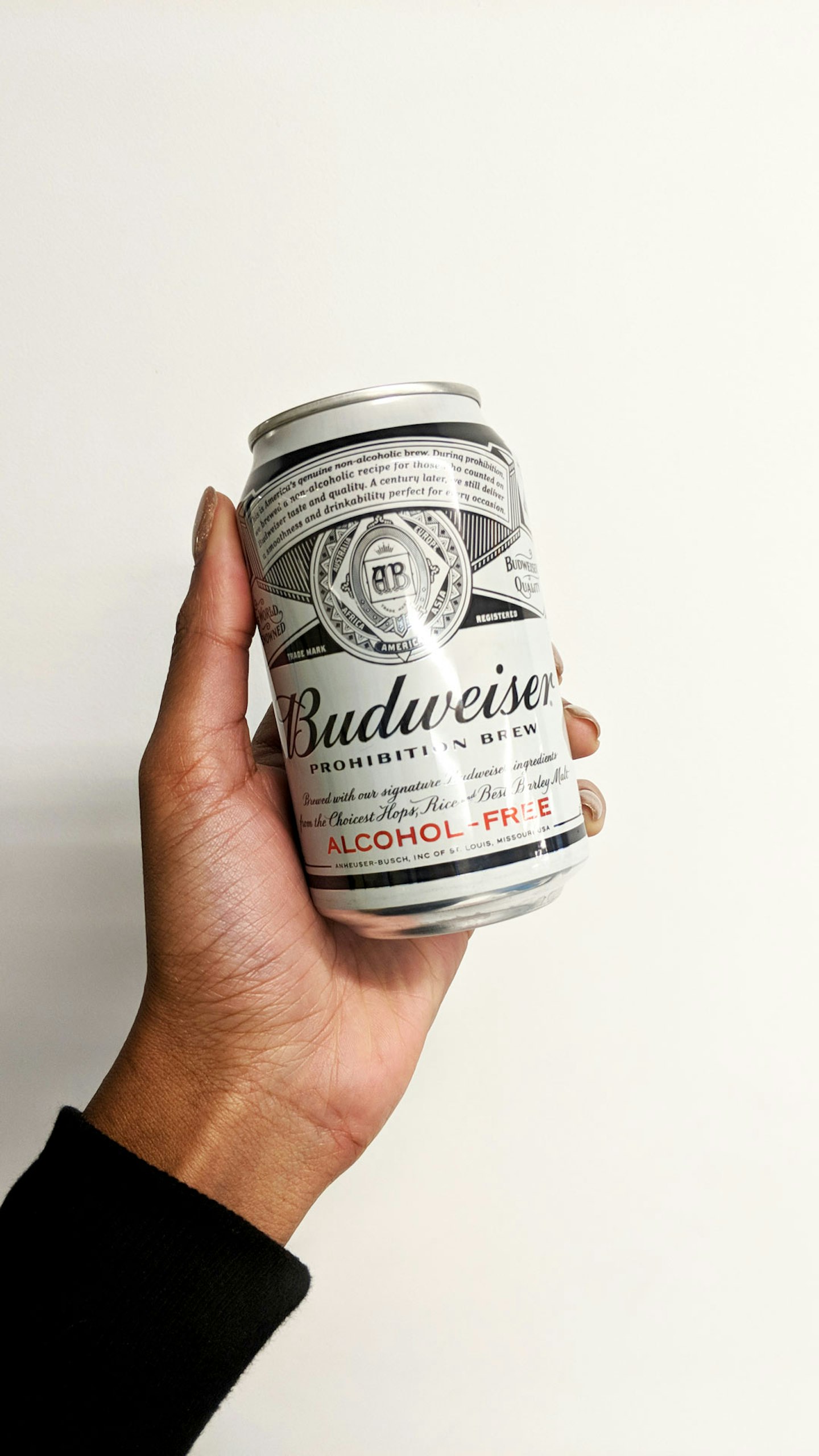 1 of 7
1 of 7Alcohol-Free Budweiser
Smells like a Bud, tastes like a Bud, comes with a can. We'd say this is top of the 'how to pretend your drinking when you don't want to drink' pecking order.
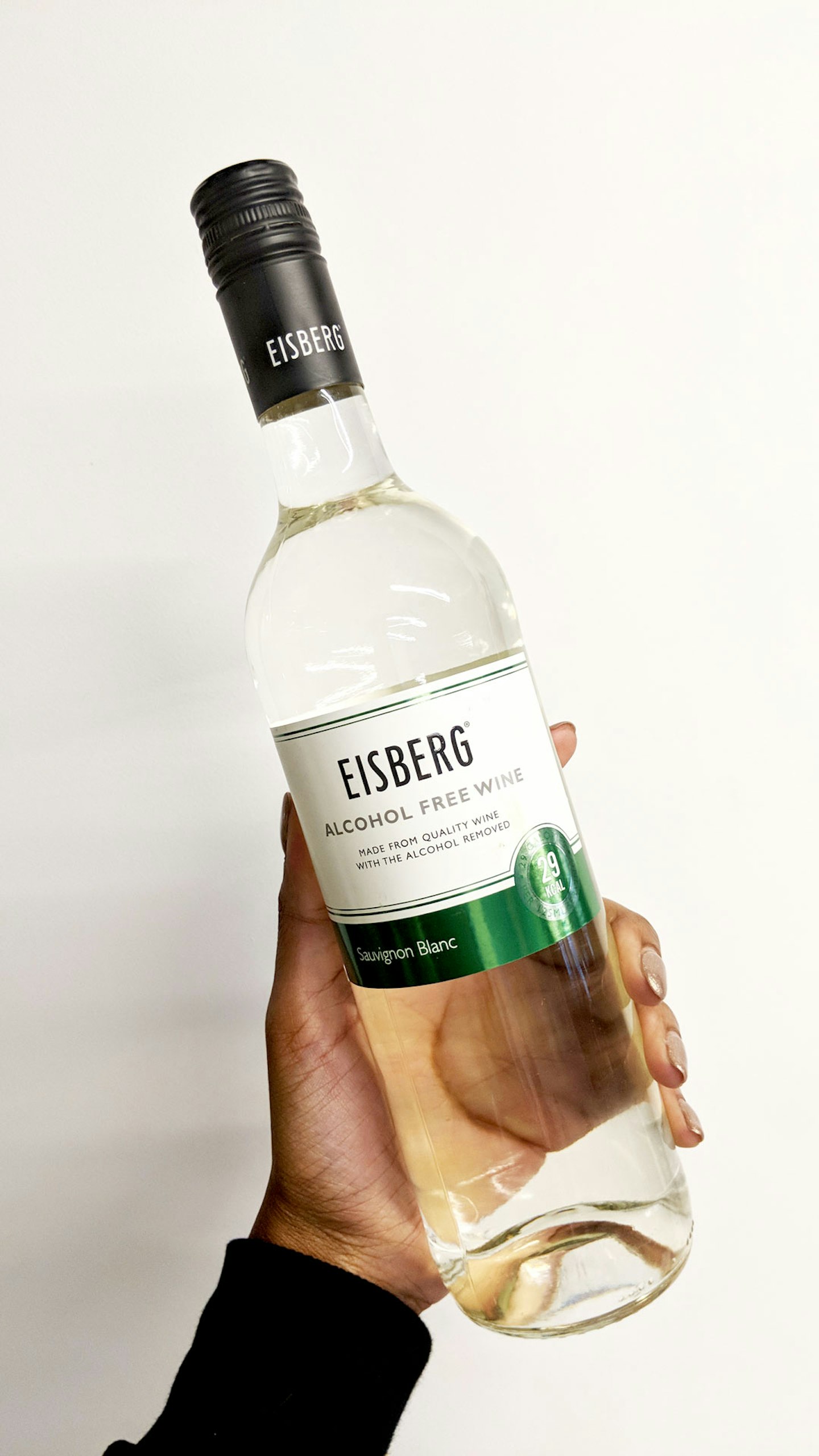 2 of 7
2 of 7Alcohol-Free Eisberg White Wine
A Sauvignon Blanc not as you know it but it's not *all *that far off. Unless you're a proper wine connoisseur... then you probably won't be into it at all. But it smells very grape-y which is as about as close to a white wine as you get in this game.
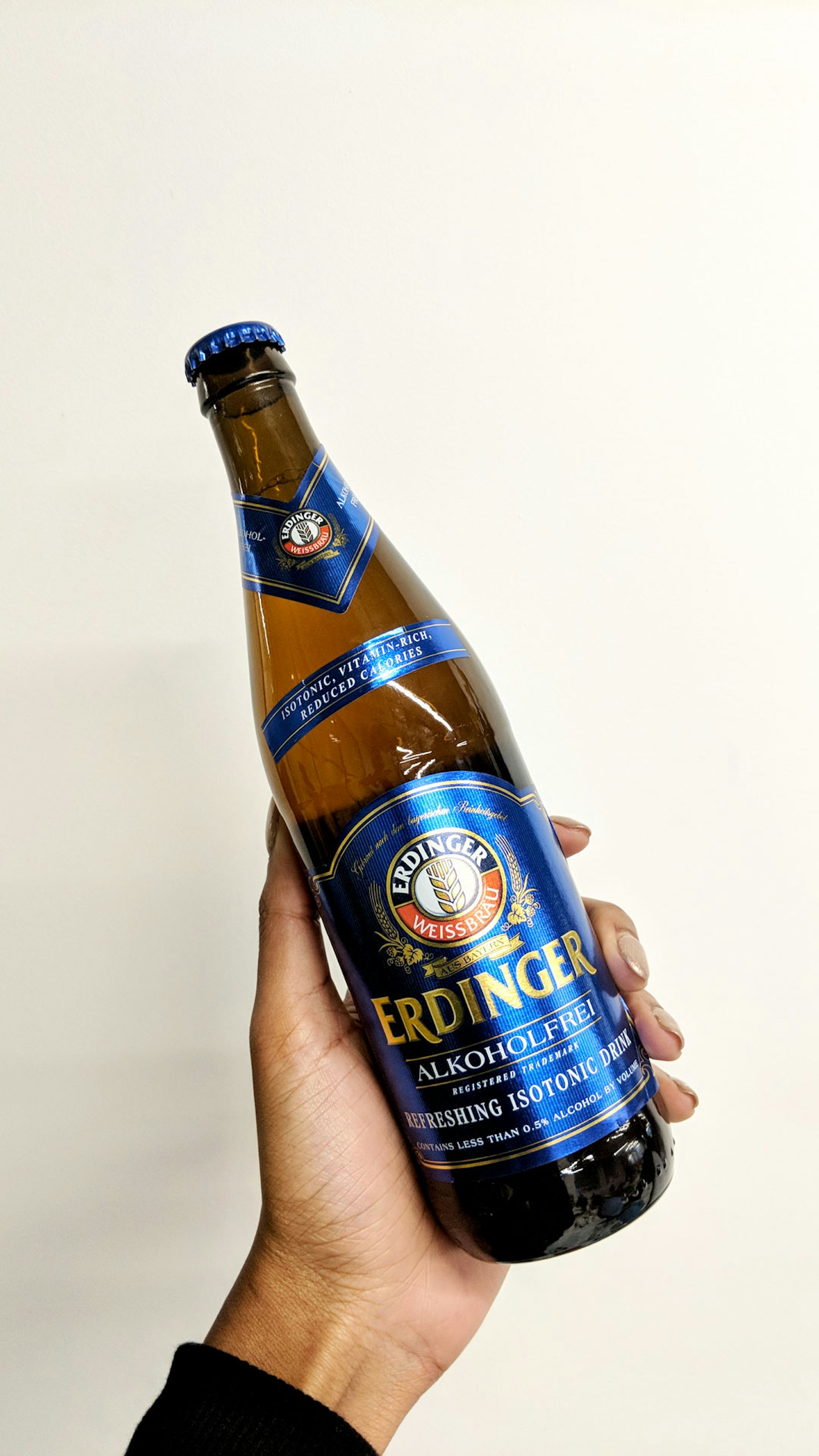 3 of 7
3 of 7Alcohol-Free Erdinger Wheat Beer
As soon as we popped the lid on this one it smelt like a pub, so if you're into full sensory drinking go for this guy here. Pours with a generous head if that's how you like your beers but don't try it luke warm. It's not pleasant at all.
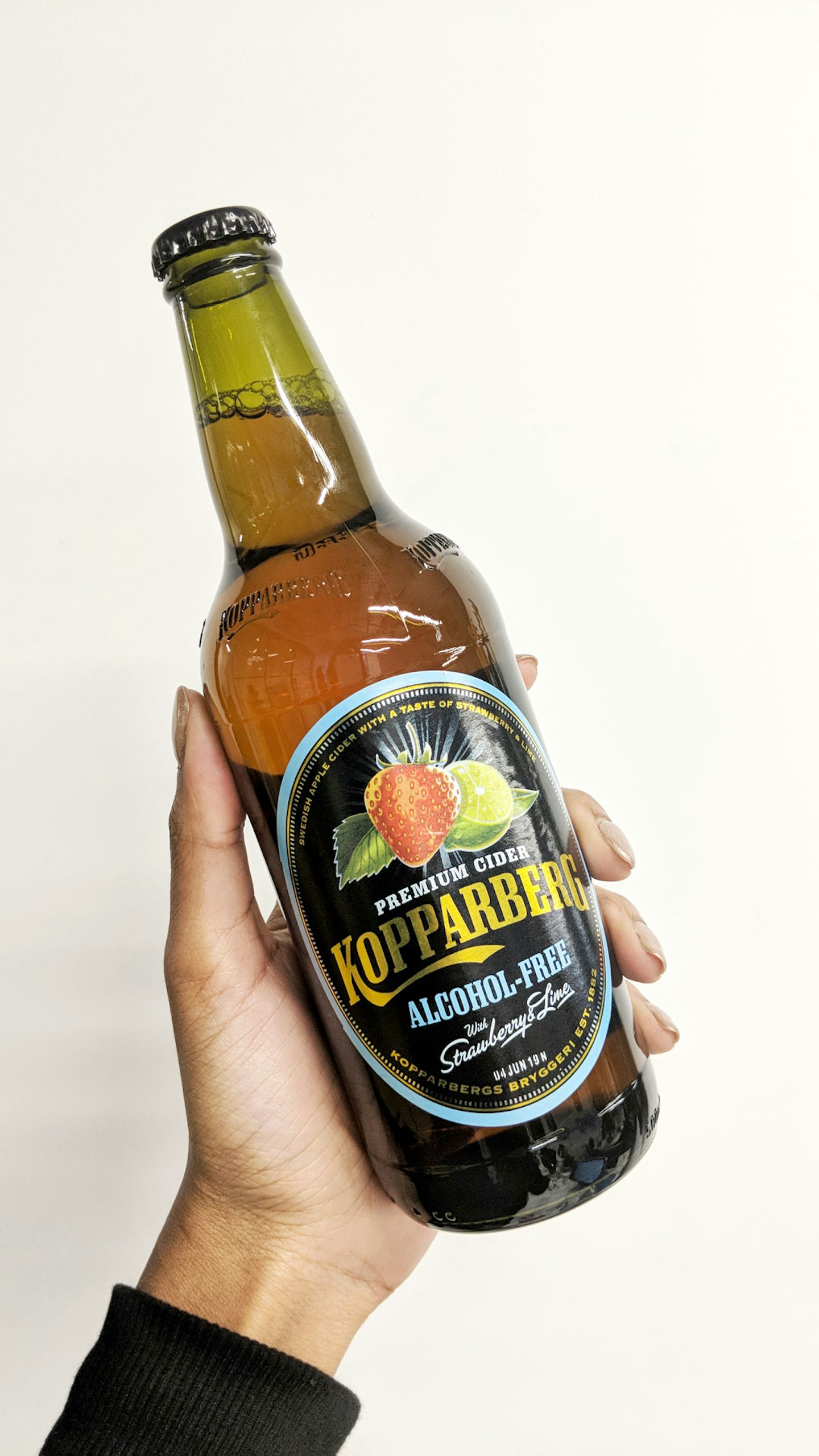 4 of 7
4 of 7Alcohol-Free Kopparberg
Oh hey there sugary-sweet cider of our younger years. Honestly, I'd struggle to tell the difference between this one and the boozy alternative which, for these purposes, is a good thing. Teeth will probably feel a bit furry by the time you finish the bottle, though.
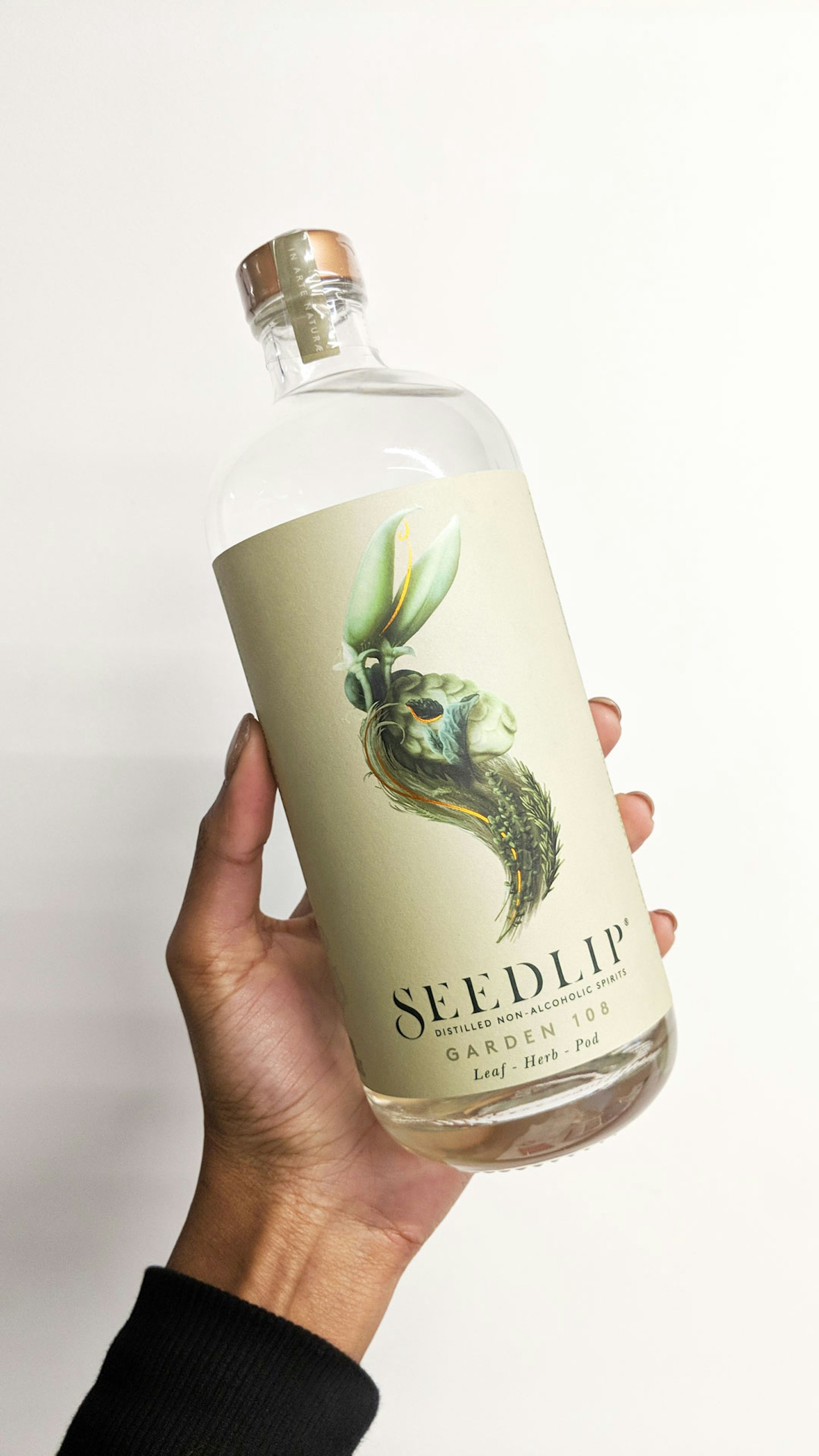 5 of 7
5 of 7Alcohol-Free Seedlp 'Spirit'
Here we have the world's first distilled alcohol-free spirit. As for which spirit it's meant to be, we're not sure. But it's made from peas (and smells like peas) but doens't taste half bad with some lemonade and/or orange juice.
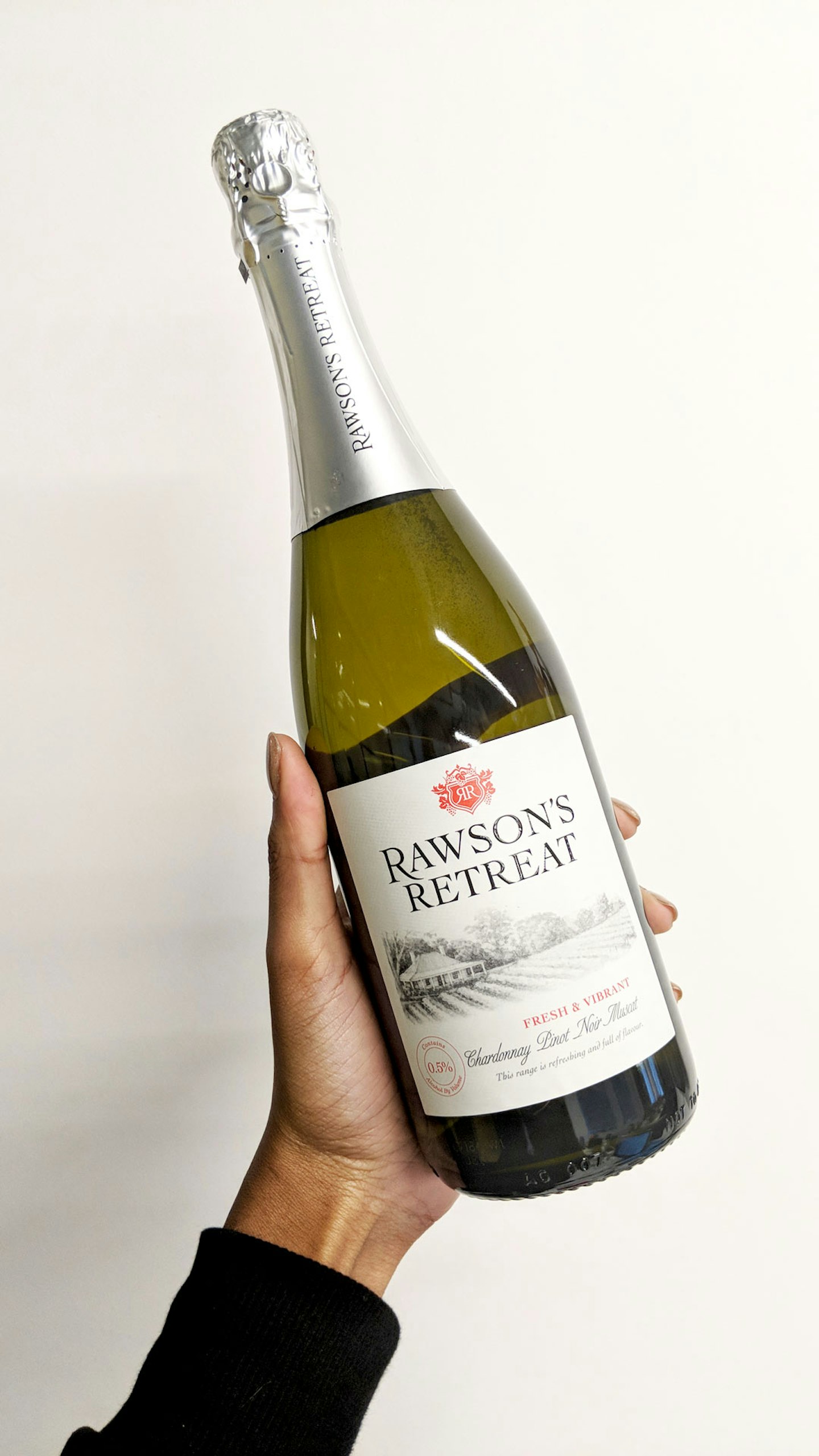 6 of 7
6 of 7Alcohol-Free Rawsons Retreat Sparlking Chardonnay
I'm very sorry to say that we struggled to find a precise prosecco alternative. And technically this bottle of bubbles is 0.5% alcohol but we're pretty sure that doesn't really count... right?
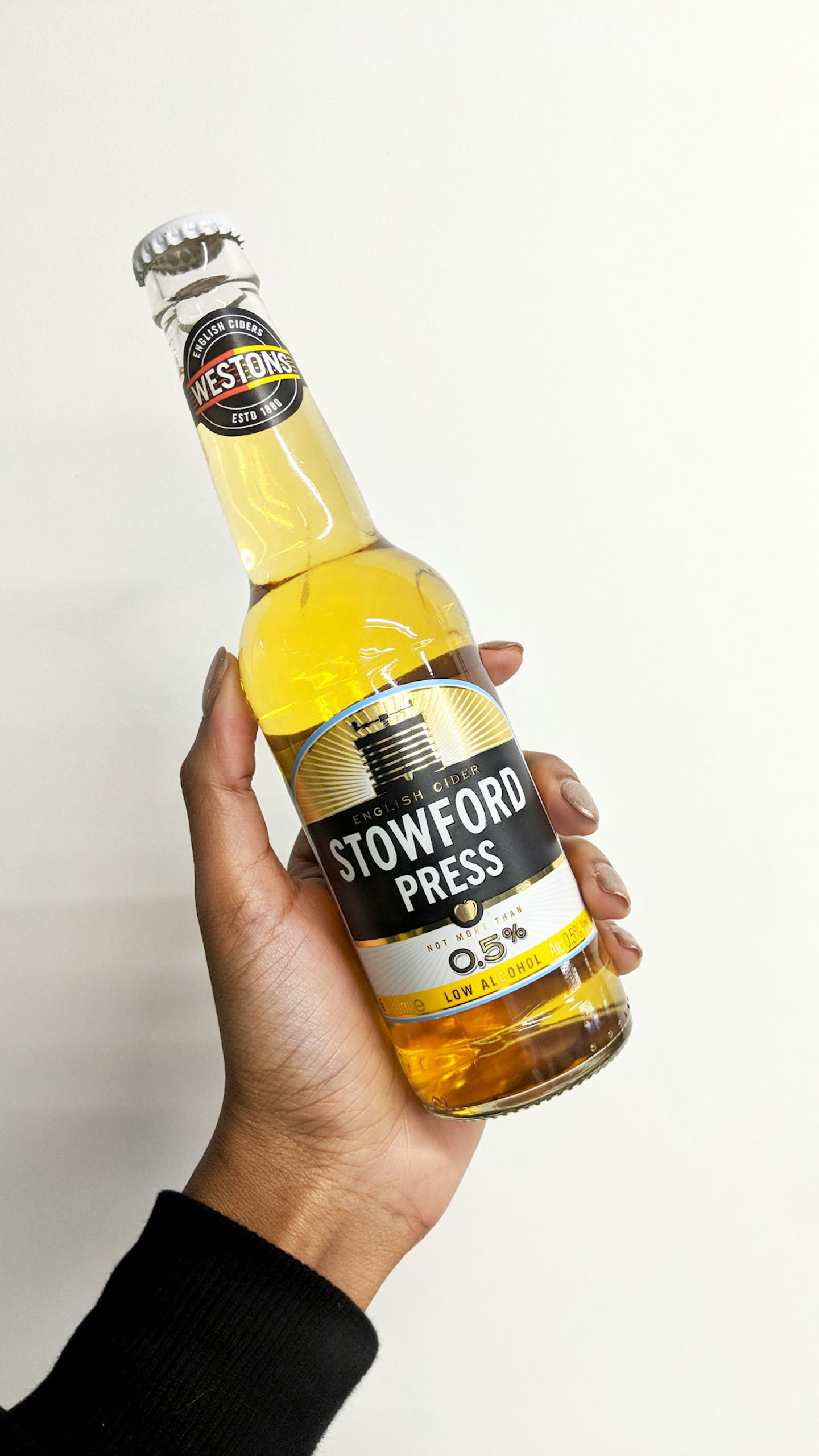 7 of 7
7 of 7Alcohol-Free Stowford Press Cider
Smells like a barrel of cider alright! And it really does taste pretty close to a pint of the alcoholic stuff that one rogue mate insists on ordering from the local pub.
